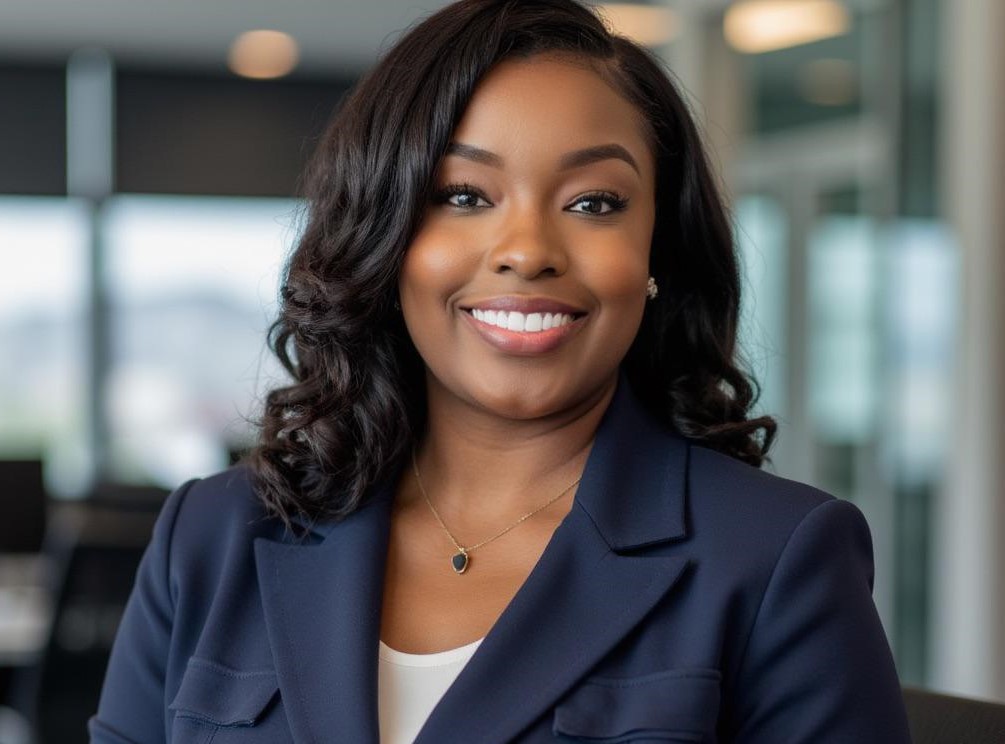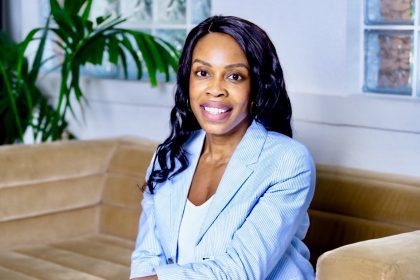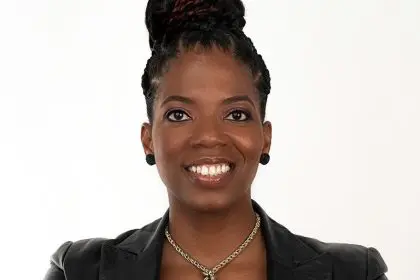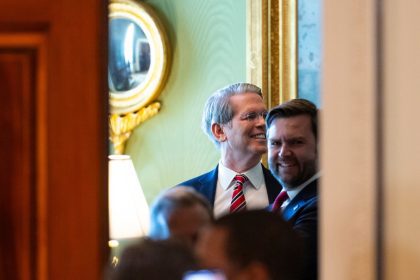Video interview with Stephanie Assi Durand coming soon. Check back shortly to watch this exclusive conversation.
Stephanie Assi Durand is revolutionizing the tech landscape in francophone Africa through her company Meraky Tech. With 15 years of experience in technology and software development, Durand has an impressive background that includes collaborations with industry giants like Accenture Federal Services, Booz Allen Hamilton, and McKinsey & Co. The founder’s expertise extends to launching numerous U.S. federal government websites and applications between 2014 and 2020.
At the upcoming Road Map to Billions event, Durand will share her knowledge on Agentic AI, helping entrepreneurs understand how to leverage artificial intelligence to build sustainable businesses without excessive startup costs. Her mission is clear: make technology accessible to everyone, particularly women and underrepresented groups in the tech sector.
What inspired you to leave corporate tech roles and launch Meraky Tech with a focus on francophone Africa?
I’ve always had a passion for impactful tech. I used to be a software engineer. I’ve worked in the US for a long time, and I saw a huge gap between the level of innovation and technology that we have in the West. Every time I go back home, because I am from the Ivory Coast, I will go home every couple of years. And I saw just the divide between what we are used to, the basic necessities, and what we have in Africa in terms of infrastructure. There’s so much work to be done. So I wanted to really lend a helping hand into just bridging that gap and just bringing us closer to that innovative state that we see in Western countries.
You have worked with huge brands such as IBM, Accenture, Booz Allen Hamilton, but I want you to talk more about Meraky Tech. What does it do to help African businesses embrace digital transformation in very practical ways?
The way we started is really looking at what we can improve in terms of digital infrastructure. A lot of companies in Africa use Western software to try to bring digital in house. So you have companies that have HR software or have productivity tools, but they’re just not made for this market. There’s still Salesforce and Hubspot and all these tools that were catering to the culture, the West. But as Africans, there’s just a way that they move that’s really different, that we needed to have our own tech. We wanted to own our own technology. So a lot of the software that we build is made for the reality of the continent. It’s made for the Africans, and which is also similar to the Caribbeans. So we also do work in the Caribbeans. So we want to create, instead of just being consumers of Western software, we wanted to create our own, and that’s what we do. We create enterprise software for this market.
Now, of course, when you compare the US to African tech ecosystems, how do they differ in pace, opportunity, and approach?
The first way is payment integration. A lot of us, or even European systems, use credit card and debit cards that’s already integrated into the platforms, but Africans do not use debit cards and credit cards. They rely heavily on cash and mobile money. So today, if you download Asana as a project management tool, I love Asana, but an African business cannot purchase the monthly subscription. Because here the debit card system is not as developed. So it’s just not an incentive for people to have cards. A lot of our clients want to use the mobile payments to pay, and you cannot do that on Asana. So our replacement software is a productivity software that also accepts mobile money payment, so they can pay from their phone using USSD code. They can enter it, and then they’ll just process their payment. This is one basic example.
The second one, a lot of people cannot read and write, so a lot of the software is not designed to cater to people that cannot read and write. So we have applications, mobile apps where there’s lots of images instead of text. So women at the supermarket, they can look at the app. They see the design of a vegetable. They see the design of a carrot. They know this is a carrot, that’s what I want to order. So a lot of our e-commerce solutions have graphics, images and voice commands that help people that cannot read and write, still purchase what they need to purchase. So these are 2 key examples of how we adapt the software to the market.
How is Meraky Tech using AI to tackle some of these regional and industry-specific problems in African markets?
Multiple sectors that can use AI, now, it doesn’t mean that they’re using it. So I know agriculture is one big issue here, where we’re trying to introduce AI to let the farmers know when it’s going to rain, how to monitor their crops, and how to use best practices. It’s not always being used, because just the infrastructure alone, it does not support strong AI development. We’re still working on that with the ministry, but it’s coming, and I’m here to support, I’m here to train. So we’re doing a lot of AI training, but actual implementation takes time.
How do you ensure that your work at Meraky Tech uplifts women and underrepresented talent in the tech sector?
When we are hiring, we really try our best to encourage women to apply, because one thing that we see over and over again is people, women especially, are intimidated by these jobs, and they look at the job description. They feel like, ‘Oh, my God! They’re asking for too much.’ So we try to simplify this process to make it attractive. I’ve removed a lot of requirements that I used to have, just because I want to make it attractive again to the female audience. There was a point where I stopped hiring men, we only had two women against nine men, and I was like, okay, we need to do better. So as an employer, I try, but also just creating a space where their voices are heard. When we have client meetings, everyone is given an opportunity to speak, to voice their opinion, and also to participate in R and D. R and D is where we brainstorm to find the next innovative idea that we want to develop. Our IoT team is made of three people, there are two women, one man, and it’s been very dynamic in that sense, it’s a conscious and intentional effort we have to make.
You’re speaking at Road Map to Billions. What is the main takeaway that you hope attendees walk away with from your session?
So I will be speaking about Agentic AI, how to build your own AI agent. And this is because we’re talking to startups. We’re talking to women, potential founders, and we want to make sure they understand that you don’t need a lot of money to start, to run your business. So these AI agents that we’re getting ready to build will handle your customer service. They will handle office management, meaning all the Admin stuff that can potentially happen. So we’re really looking here as a companion. We’re trying to build a companion that will help run your business from the get go, so you can save money instead of hiring a graphic designer, personal assistant, and secretary. We’re building all in one, so that you can save some money, that’s the main goal here. It’s also to show the power of AI when you’re really ready to delegate. So that’s what I will be tailoring my session into, and then I hope it’s very beneficial to all the founders that will be there.
And what’s one thing that you hope that attendees will walk away with after attending your session?
I want them to know that all this AI stuff is truly accessible to them, too. It’s not just for engineers, you don’t need to have a degree to start touching and creating AI based products. We want to make it accessible, and that’s how I tailored my curriculum. They’ll see that it’s going to be really easy, and we want to empower them to go ahead and try it, touch it, feel it, and experience it for themselves. So accessibility is the key to remember here, if I can do it, you can do it too.
What is your advice to women of color who are building cross-continental tech companies in today’s global economy?
I would say, the world is completely open, and not to limit ourselves to a geography. I could have done these amazing things in the US, but we want to conquer the world. We want to have impact and impact can be had, regardless of the demographic. You can have an impact in India. You can have impact in Latin America. So all these places are just hungry for people to come in and help build their ecosystems. So I would say, fear is a crippling factor, I understand, but you won’t fail until you try. So let’s get out there and try.
Find Stephanie Assi Durand on LinkedIn, Instagram (@Stephanieassid), or visit her website at merakytech.com for more information about her projects, clients, and current investments.














